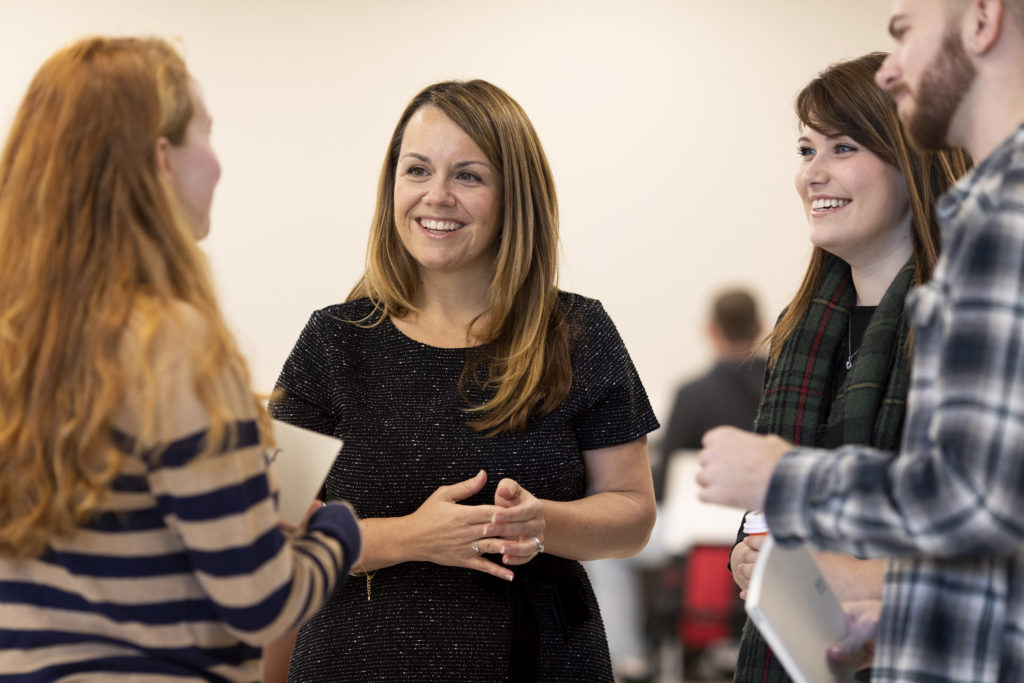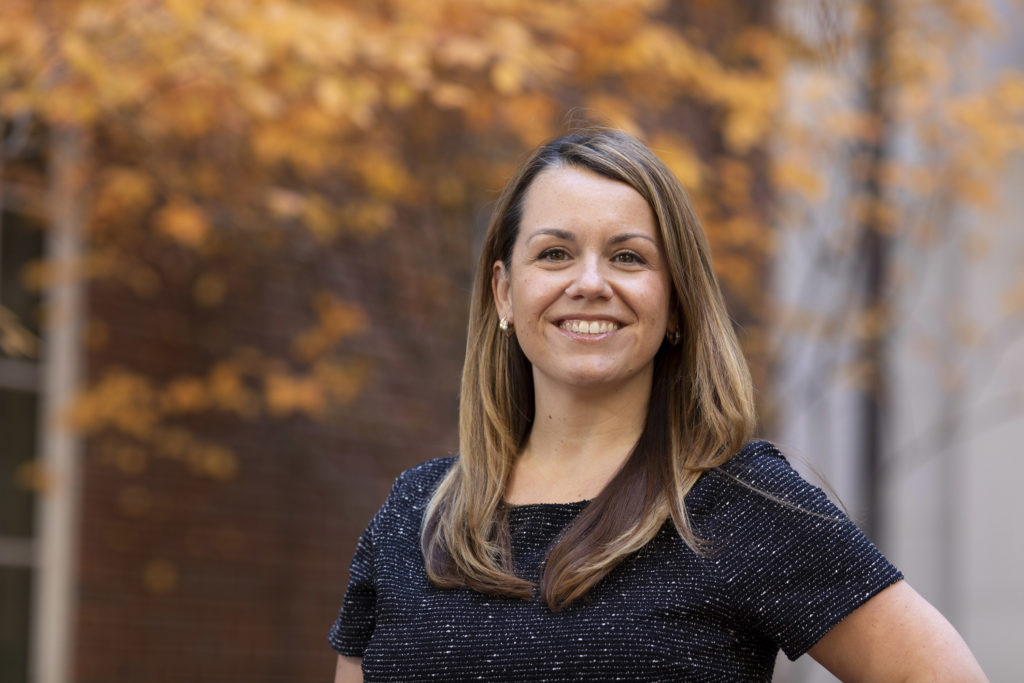Maryann Gallagher, a lecturer in the School of Public and International Affairs, helps students understand the ways international relations shape their lives and the ways their choices shape international relations.
When did you come to UGA and what brought you here?
I joined the international affairs department in the university’s School of Public and International Affairs thanks in part to a bit of love and luck. Prior to coming to UGA, I was an assistant professor at DePauw University, a liberal arts college in Indiana, but left my position and moved to Athens in 2013 to join my husband, who was already working here. Originally, I was a limited-term instructor, however the international affairs department received a lecturer position as part of a university initiative soon after I started teaching. After a national search, I was offered the position. The timing could not have been more perfect!
What are your favorite courses and why?
I truly love all the courses I teach. However, my two favorites are “U.S. Foreign Policy” and “War and Gender.” “U.S. Foreign Policy” was the first course I ever taught, more than a decade ago, and it’s the one that students consistently come back to discuss, even long after graduating! Many of our SPIA students want to work in the foreign policy arena but have little background in contemporary U.S. history or the policymaking process; this course fills both of those gaps. The course is challenging, as students grapple with the complexity of foreign policy issues. Yet it is thrilling to see them empowered with a better understanding of why the U.S.’s foreign policies look the way they do and how they could impact those decisions in the future.
“War and Gender” is the course closest to my current research interests. It’s such a joy to be able to have engaging conversations about the course readings with bright, enthusiastic students (our conversations often spill out into the hallway after the class is over). The most rewarding aspect of this course is when students begin to see the ways that the concepts we discuss become relevant to their lives outside the classroom. Sometimes it happens when listening to a news report; for others, it’s when they’re out with friends. Nevertheless, nearly all students write in their online journals about seeing myriad ways that conflict and gender shape their world that were previously invisible to them.
How do you describe the scope and impact of your research or scholarship to people outside of your field?
My dissertation and early research focused on how leaders’ personalities influenced foreign policy decision making. Since coming to UGA, my research interests have shifted toward questions related to the intersection of conflict and gender. For several years I have been working on a project examining the influence of women and gender norms when it comes to the prosecution of sexual violence in war with Zoe Li, one of my Center for Undergraduate Research Opportunities students, and Deepa Prakash, a colleague at DePauw. We recently had an article from that project published in the International Feminist Journal of Politics.

From left, undergraduate student Caitlyn Gegen talks with Maryann Gallagher and fellow students Ashlyn Webb and Hayes Taylor inside of Baldwin Hall. (Photo by Andrew Davis Tucker/UGA)
How does your research or scholarship inspire your teaching, and vice versa?
My research is often motivated by conversations that start in the classroom. For instance, the article mentioned above was inspired by readings that were assigned in a section on women and international courts in my “Women and World Politics class.” Another ongoing project, “If this were important I would have learned about it in my Introduction to IR class,” takes its name from a statement made by a student in class. It examines what topics are taught in Introduction to international relations courses at universities across the U.S. On the flip side, the subjects of my courses speak directly to my research interests and allow me the opportunity to bring new, innovative scholarship into the classroom to share and discuss with students.
What do you hope students gain from their classroom experience with you?
Regardless of the level or subject, I hope that students come away with a greater sense of the ways international relations shape their lives and the ways in which their personal choices shape international relations.
The one UGA experience I will always remember will be …
This is difficult because there have been so many memorable moments inside the classroom, but two experiences outside the classroom stand out. The first was being awarded the J. Hatten Howard III Honors Teaching Award. It was a wonderful, unexpected recognition for teaching a course, “Honors Women and World Politics,” that has provided countless rewarding experiences. Second was organizing the inaugural SPIA Undergraduate Research Colloquium. This was the first time many of our students presented their research, and their enthusiasm to engage others in their work made it a remarkable experience.
